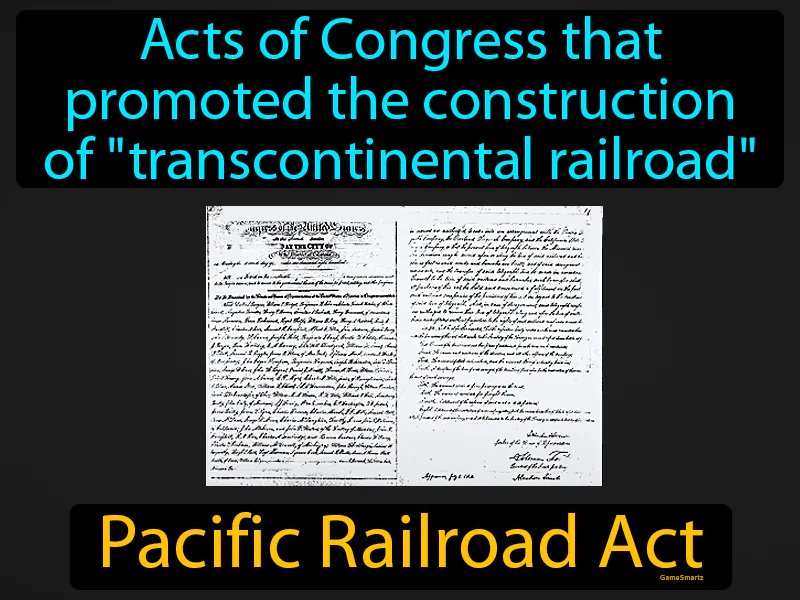Pacific Railroad Act
Pacific Railroad Act: Easy to understand
The Pacific Railroad Act of 1862 was crucial in transforming the American West by authorizing the construction of the first transcontinental railroad, which linked the eastern and western United States. This act highlighted the tension between progress and indigenous rights, as the railroad's construction often displaced Native American tribes. Today, these themes still resonate in discussions about development versus environmental and cultural preservation. The railroad's impact is still felt, as it set the stage for rapid transportation and communication, which are vital for today’s global economy. For an average person, this translates into fast travel, the availability of diverse goods, and the ability to connect with distant places more easily.

Practice Version

Pacific Railroad Act: Acts of Congress that promoted the construction of the transcontinental railroad. Pacific Railroad Act. The Pacific Railroad Act was a law passed in 1862 that provided government support for building the first transcontinental railroad across the United States.